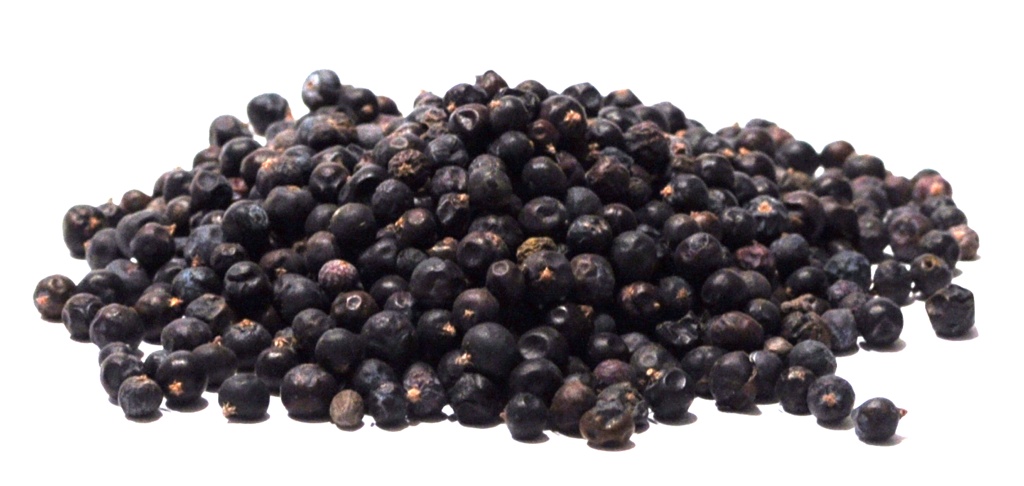Juniper Berries

1 lb bag $14.80
|
Juniper Berries
Many people learn about the taste of juniper berries by knocking back a martini. Those berries give the gin in martinis its distinctive taste. Not coincidentally, the words “gin” and “juniper” share a common etymological root. But juniper berries aren’t just for happy hour, as Scandinavian and Germanic cooks have known for centuries. The piney, resinous, tart and peppery taste gentles the gaminess out of such meats as woodcock, duck, boar and venison. The crushed berries work well in any strong tasting savory dish, like sauerkraut or the brine used to corn beef. They also lend a sharp counterpoint to sweet dishes. Some dessert chefs experiment with sugar that has been flavored with juniper. In any dish, just a few, crushed, go a long way.
Although they look like berries, because of their small size, blue color and smooth skin, they’re really the cones of a female conifer, Juniperus communis. This evergreen shrub, standing 4 to 6 feet tall, thrives throughout much of the Northern Hemisphere, even into Arctic reaches. Most of the berries traded for culinary purposes come from Hungary.
The first known use of juniper had nothing to do with food, however. The berries have been found in ancient Egyptian tombs, perhaps because of their antiseptic properties. Those artifacts were probably imported from Greece, where Olympic athletes ate them to improve stamina. The idea has merit, because the berries are rich in antioxidants. Modern naturopaths prescribe juniper berries for bladder infections. In addition to their antibacterial properties the berries stimulate the flow of urine. They also stimulate digestive enzymes and can help with a tummy ache. And if you’ve knocked back too many martinis, try munching a few berries the morning after.
For wholesale buyers, our juniper berries are available in bulk, in one-pound bags.
